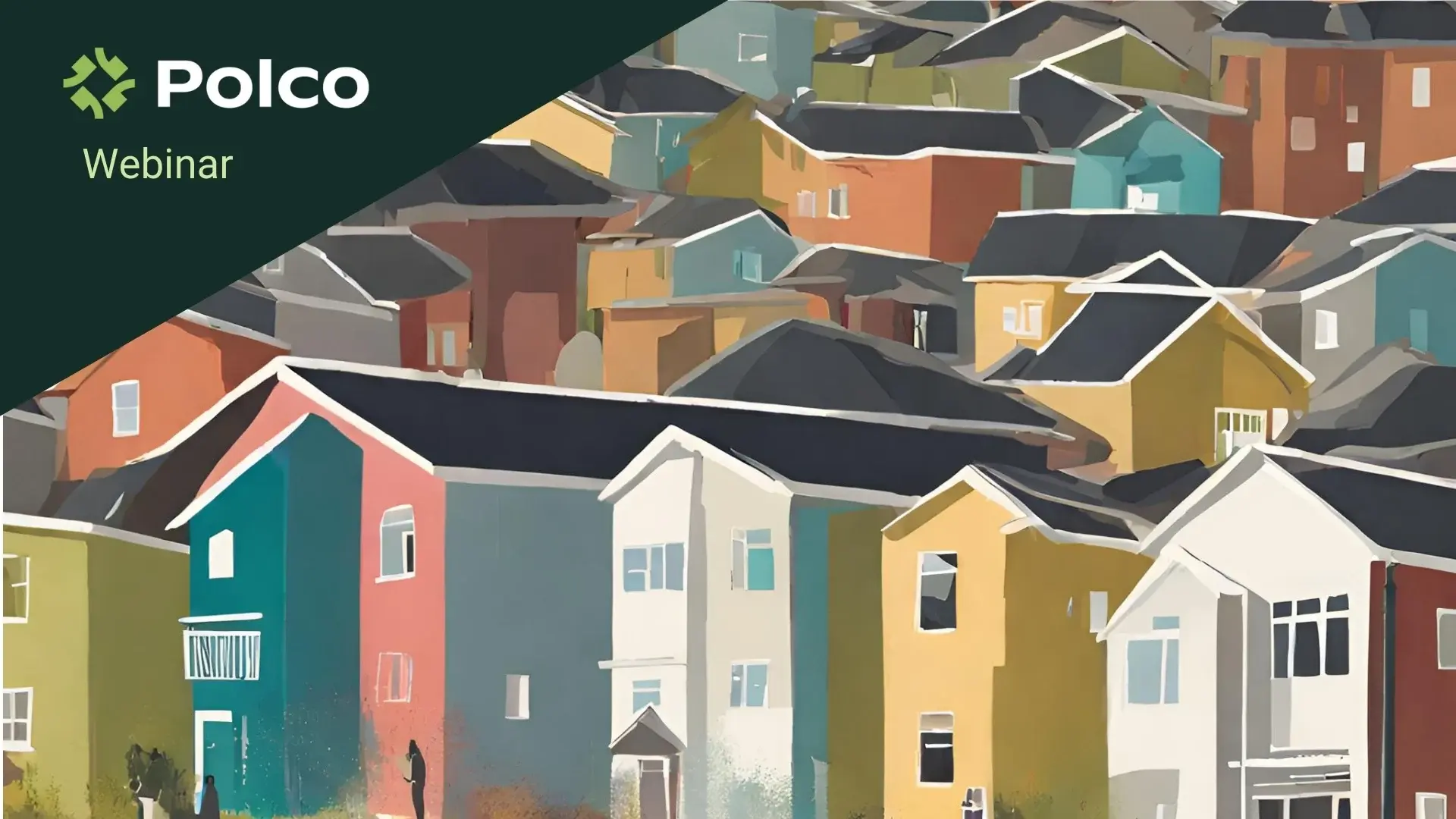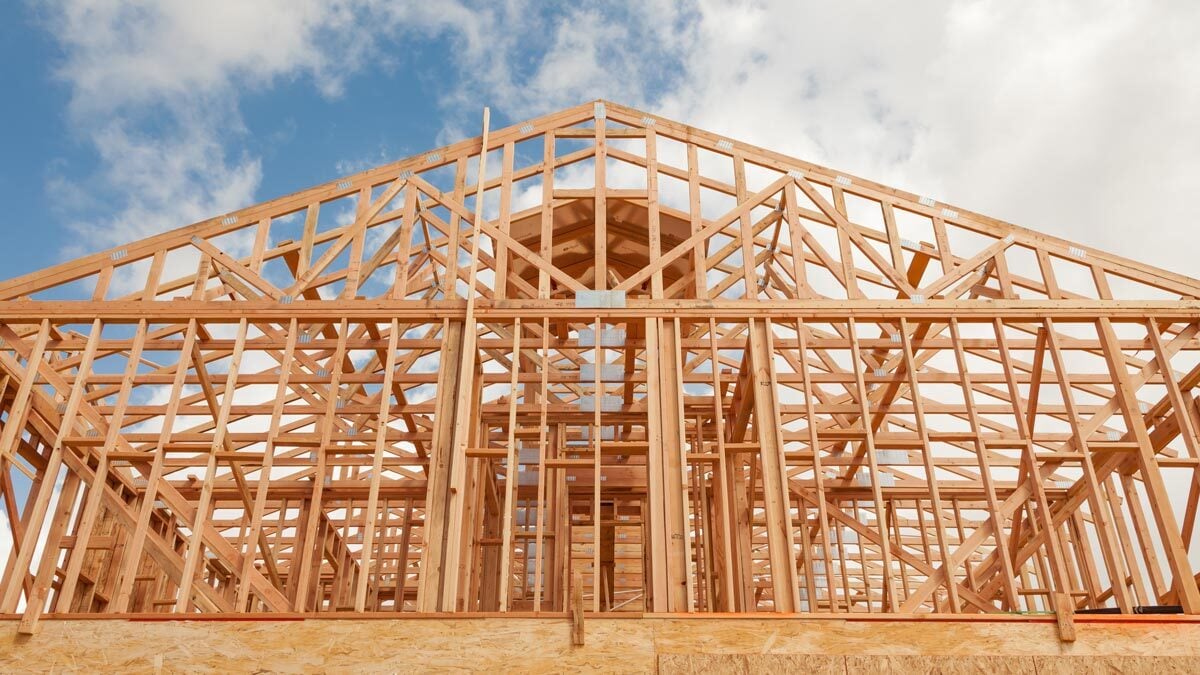How To Engage Residents in Housing Solutions
By Polco on January 19, 2024

Learn how other communities use resident engagement to overcome pushback to housing plans.
The housing shortage crisis is affecting the entire United States. Yet, most local governments' new housing proposals are met with pushback.
“I would say some of the most heated public meetings I've seen in my career over the last 30 years have honestly been around where you place multifamily housing, affordable housing, and homeless shelters,” says Michelle Kobayashi, Principal Research Strategist at Polco.
But the good news some organizations have found a way to overcome opposition and earn support for their housing plans. Watch the webinar to learn how.

In this webinar, Kobayashi talks about the current state of housing and shares data on how Americans currently feel about housing in their communities.
Then, Diana Elrod, owner of Diana R. Elrod Consulting strategic planning company in the Bay Area, and Abby Boyd, Director of Housing Opportunities for Virginia Housing, an affordable housing non-profit, discuss what they are doing in their cities to engage residents in finding solutions.

The State of Housing in the US
Home prices have shot up since 2020. Many millennials are entering their child-rearing years. Baby Boomers’ housing needs are changing. Mortgage rates have increased. And home supplies are at record lows; currently, there is a 6.8 million unit shortage.
Polco data reveals the housing strain all this has caused on the American people.
Data from Government Performance Action and Learning (GPAL), Polco’s community data project that analyzed hundreds of public data points, show 24% of homeowners and 33% of renters are housing-cost burdened. This means they are paying over one-third of their income on housing costs.
According to The National Community Survey (The NCS) by Polco, a nationwide assessment that asks residents about their community and government services, only 24% of owners feel positive about the availability of affordable housing in their community. And a staggeringly low 16% of renters approve of their affordable housing options.
Panel Discussion - What's the Housing Crisis Like in Your City and What Are Your Solutions?
Small parts of the conversation have been selected for length purposes. Watch the webinar to hear the entire discussion.
What impacts of the housing crisis are you seeing in your community?
Diana Elrod: [In the Bay Area], a lot of the biggest problems are the fact that the people who do service industry work—I'm not just saying like your teachers and your firefighters, who are important—but also your nail tech, your gardener, the person who bags your groceries, those folks don't make enough money to live in the communities where they work.
Abby Boyd: When I think about the impact of the housing crisis in Virginia statewide, we're seeing an increase in homelessness everywhere. The most recent point-in-time data from The United States Interagency Council on Homelessness (USICH) shows that today we have highest level of homelessness since they started counting how many people are experiencing homelessness.
What kind of pushback do you get from residents when it comes to adding housing?
DE: Well, we get pushback in a lot of communities. It doesn't matter what kind of housing, whether it's affordable or not. There's a tendency, especially in the Bay Area’s more suburbanized locations, that we don't want to become like San Francisco. We don't want to become Manhattan. We like things the way they are. And this idea of being frozen in time somehow is appealing to people. I moved to this place because of fill-in-the-blank. I don't want to see more housing. So the actual pushback could be from any kind of housing. It doesn't necessarily mean just affordable housing.
AB: [A lot of pushback] is built on fear of not knowing who we're talking about when we say some folks need affordable housing. It's just the fear of the unknown that we all have to some extent. There is not enough education about what affordable housing can do to an economy to improve it–especially in parts of Virginia that are rural along the eastern shore, for example. There's no more economy because nobody lives there. But if you brought housing in and folks could afford to live there, or there was just housing, period, that existed, you could build back that economy.
What kind of engagement or collaboration have you done with community members on this topic?
DE: [One California community received a housing allocation for 2100 units, which was 20% of their actual housing stock.] So talk about being mad. [We sent an invite to everyone in the community to come up with a plan.] We got people in these rooms discussing their real-life problems with other people who didn't have the same kinds of problems. And if nothing else, the experience from this was—we still maybe have angry people—but they understand the problem that we're trying to address and we're willing to entertain the notion that perhaps they could help solve a problem that none of us really wanted.
AB: We [engage] through our strategic housing, our grants, and education. We have a community impact program where communities and nonprofits can come in and apply for funding. And then we have staff to help execute. That really helps with community engagement, market studies, developer summits, education, and awareness.
We also have capacity building funds, [grants] which allow organizations to kind of beef up what they know [as far as their own operations]. So when Virginia Housing steps away, they're still able to go out to the community and have that same impact.
What have you found effective in building community support for housing plans?
DE: Community engagement as often as possible with as many people as possible is probably the most effective way, especially getting underserved or underrepresented groups to participate.
AB: It's really communication, a lot of it, often, and from different perspectives. We try to really emphasize the importance of communication, really educating folks. We're always there to say, yes, how can we support you? What can we do? What can we bring to the table?
Community Engagement Tools So You Can Gain Support For Your Housing Plans
Polco offers tools like the Housing Simulation to engage your residents in housing solutions. The simulation shows residents how much housing is needed in your community, what types of housing options are possible, and where it's possible to build. Through this process, residents gain a better sense of the housing situation in your city, which can help you earn support your housing plans. Request information to find out more!
Popular posts
Sign-up for Updates
You May Also Like
These Related Stories

Housing Impacts on Aging in Place and How You Can Drive Solutions

National Survey Reveals Shocking Gaps in Housing for Older Adults


